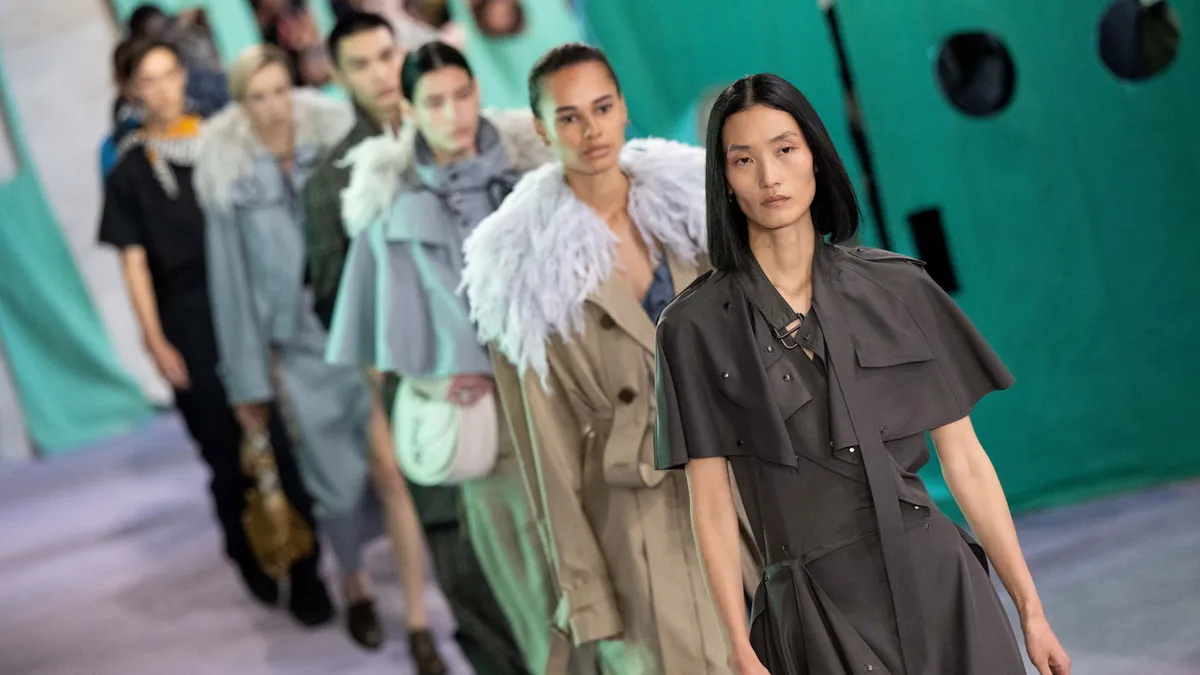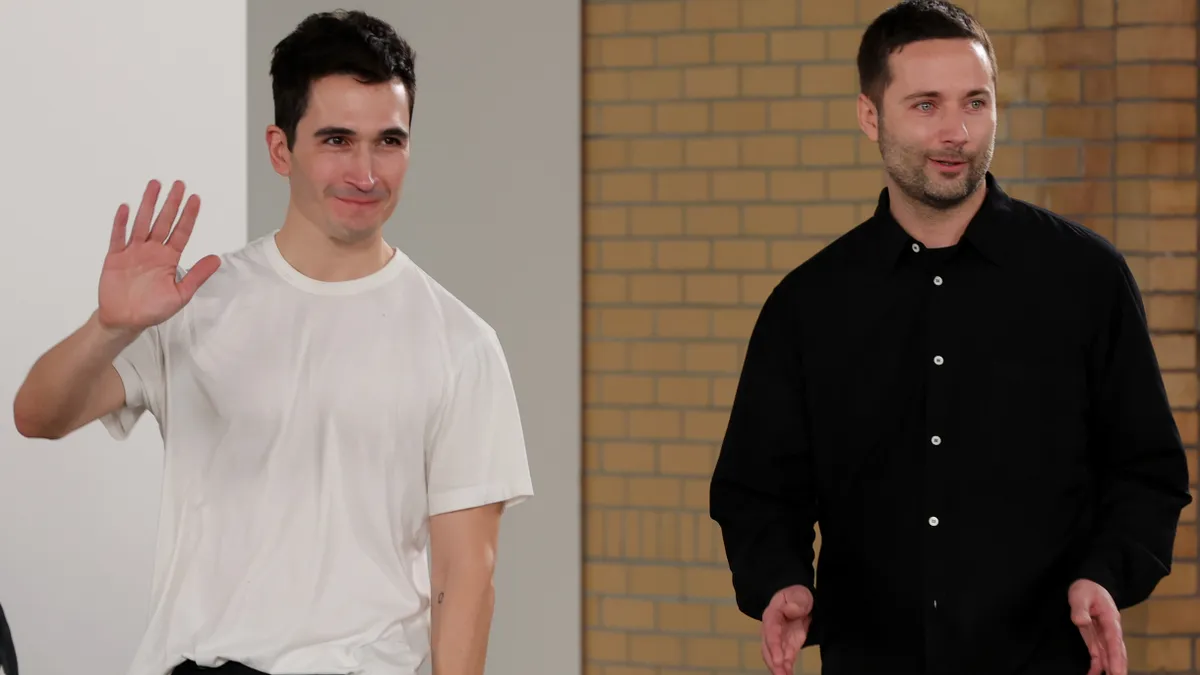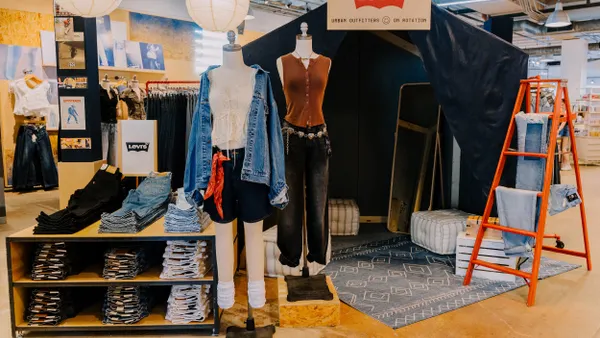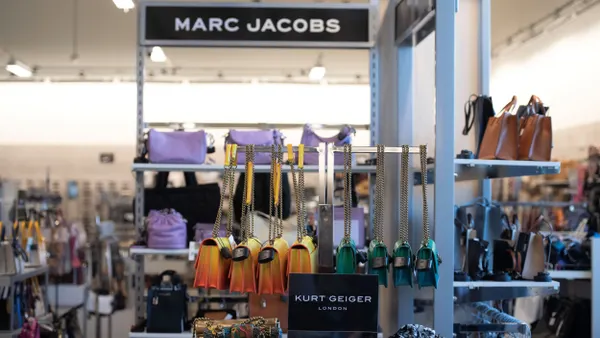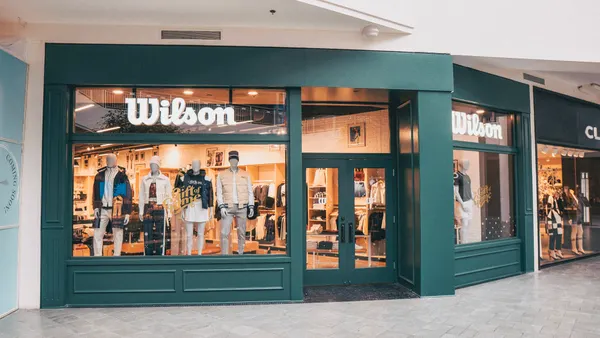Dive Brief:
- Burberry Group Plc reported H1 fiscal 2024 revenue of 1.1 billion pounds, or about $1.4 billion, representing a 22% year-over-year loss, according to a Thursday release.
- The company posted a year-over-year loss of 74 million pounds for the period, down 147% from a profit of 158 million pounds for the same period last year. Retail revenue was down 21% for the period, and wholesale was down 30%.
- Alongside the steep earnings decline, the company announced a strategic turnaround plan, called “Burberry Forward.” It’s designed to refocus the brand on its “unique history and heritage, and category authority in outerwear and scarves,” Burberry said in the release, adding, “[o]ver the past several years, we moved too far from our core with disappointing results.”
Dive Insight:
Despite the company’s poor results, Burberry shares shot up 20% Thursday morning following its newly announced strategic plan.
CEO Joshua Schulman, who took the helm in July, said in the release that it was time for the company to return to its roots.
“Burberry’s original purpose to design clothing that protects people from the weather is more relevant than ever,” Shulman said. “Our recent underperformance has stemmed from several factors, including inconsistent brand execution and a lack of focus on our core outerwear category and our core customer segments. Today, we are acting with urgency to course correct, stabilise the business and position Burberry for a return to sustainable, profitable growth.”
Shulman said that the Burberry brand has broad appeal to luxury customers, as well as “authority in the outerwear and scarf categories,” and added that by building on the company’s strong foundations, he was “confident that Burberry’s best days are ahead.”
Louise Deglise-Favre, senior apparel analyst at GlobalData, said in emailed comments that in the past, Burberry has struggled to connect with consumers, and has been “hampered by uninspired designs and a mismatched pricing strategy.”
She said that since the 1990s, Burberry’s successive CEOs have “pursued the elusive goal of elevating Burberry’s premium price position into luxury, but without success, as they overlooked the need for exclusivity driven by careful supply control.”
Yanmei Tang, analyst at Third Bridge, said in emailed comments that higher prices and more elite positioning could have also contributed to the company’s slowdown.
“Traditionally viewed as an entry-point brand in luxury, Burberry balanced high-end runway pieces with affordable items like scarves and shoes that attracted a broad clientele,” Tang said. “The recent overhaul removed these accessible items and hiked prices by up to 30-40%, alienating a large segment of buyers while repositioning the brand as more avant-garde and elitist — an approach seen as risky in the current market climate.”
Looking ahead, Burberry said in its release that it’s “acting with urgency to stabilise the business and position the brand for a return to sustainable, profitable growth,” but that in the short term, with the holidays just ahead, it’s too soon to know whether the company’s H2 results can fully offset the H1 loss.
Tang said a shift to more accessible products could be on the horizon.
“With new CEO Joshua Schulman from Coach and Michael Kors, there’s speculation about whether Burberry might shift toward a more commercial path,” Tang said. “However, our experts feel Burberry should avoid a straightforward ‘British Coach’ approach. Instead, Burberry could take inspiration from brands like Louis Vuitton by balancing high-end, artistic collections with accessible, core items, keeping its British heritage at the forefront.”
Meanwhile, Deglise-Favre squashed rumors of a possible Moncler acquisition, saying they “appear unfounded as unnamed sources close to Burberry have dismissed the speculation and they weren’t acknowledged in this morning’s statement.” She added, though, that “given Burberry’s current challenges, a partial acquisition could potentially provide the capital needed to fully implement Schulman’s strategic shift.”



